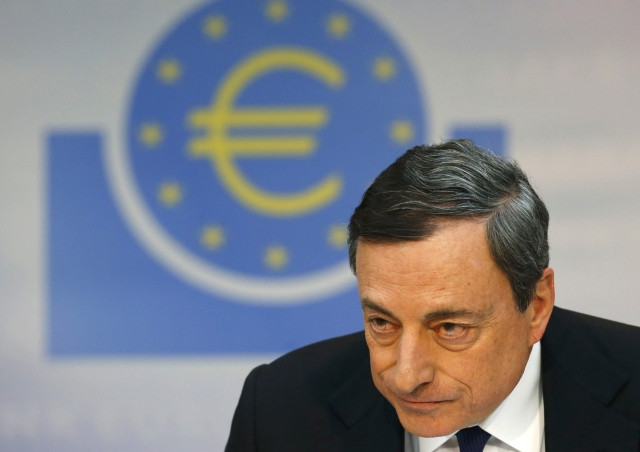Eurozone Deflation Fears Heighten as Inflation Slows Further

Inflation the in the eurozone slowed further in May, fuelling fears that the troubled currency area will slide into deflation.
Eurostat, the European Union's (EU) official statistics agency, said inflation was 0.5% in the month, down from April's 0.7%.
It puts extra pressure on the European Central Bank's (ECB) intensified monetary stimulus to help boost bank lending and economic growth in the eurozone, amid concern about slowing inflation.
The ECB, which is governed by Mario Draghi, slashed key interest rates and added €400bn (£319bn, $541bn) of support for banks to increase their business lending in a bid to boost the supply of money in the eurozone.
In the first three months of 2014, the eurozone economy continued its tentative recovery with 0.2% GDP growth, following a 0.3% expansion in the final quarter.
Yet bank lending in the eurozone, including in the powerhouse German economy, is falling. One of the conditions for sustainable economic growth is an increase in the money supply through bank lending.
To get banks lending more to firms, the ECB slashed its benchmark interest rate to 0.15% - a new record low – to bring down the cost of credit.
It also cut its deposit rate – the interest paid on overnight cash deposits left at the central bank by financial institutions that have a surplus – to minus 0.1%.
This means it costs banks money to leave capital with the ECB, which policymakers hope will incentivise them to lend it out rather than hoard it.
Moreover, the ECB slashed its rate on the marginal lending facility – where it offers cheap overnight credit to banks in need to some quick funds – to 0.4% from its previous 0.75%.
And it offered an extra €400bn of cheap funding for banks who lend more to businesses. Those who increase their business lending can get hold of a bigger value of discount loans from the ECB, reducing their costs.
If deflation were to occur, it would spark something called a "liquidity trap". This is where banks, businesses and individuals hold onto money because it will naturally increase in value as prices deflate.
By holding onto cash it is not spent or invested – harming economic growth.
The ECB's actions would then have little or no impact. Cutting interest rates would not lead to bank lending, because deflation means hoarding money would produce a real return at less risk than lending it out at interest.
One headache for the ECB is that by taking such extraordinary steps to increase bank lending and prevent deflation, it may actually end up encouraging it.
If banks looking ahead think deflation will begin because the ECB is taking such radical steps to prevent it, they may start to hold on to their capital.
This will then reduce their lending further, limiting the money supply and pushing prices into deflation as firms discount heavily to encourage spending rather than hoarding.
This self-fulfilling deflation cycle is something that is concerning the ECB policymaker Christian Noyer. He has warned of the development of "a perverse feedback loop".
© Copyright IBTimes 2025. All rights reserved.





















